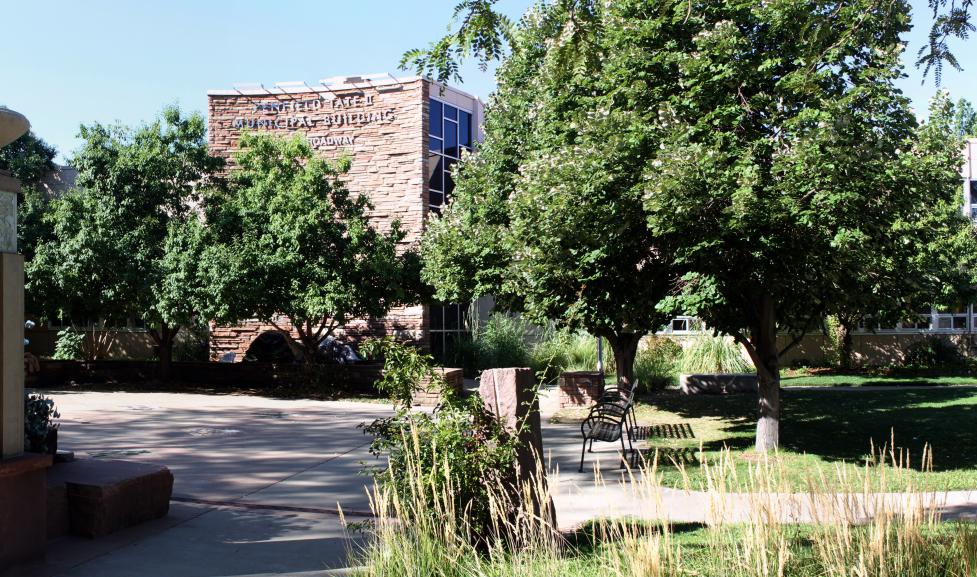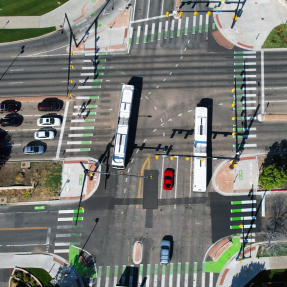Process
The Facilities Master Plan spans all city departments in one way or another, unlike most master plans that are specific to a department’s services in the community.
Five years of a two-pronged engagement approach with a variety of stakeholders have informed the development of this first comprehensive Facilities Master Plan:
- Community input as it relates to buildings and facilities was provided through individual departmental master plans, and the engagement conducted in the creation of those plans.
- Community and staff input as it relates to buildings in general, and more specifically city office buildings that commonly fall short of representation elsewhere, was solicited through several targeted engagement events over the past several years.
Facilities Master Plan Key Initiatives and Strategic Actions
The two Key Initiatives presented in this master plan are aimed at reducing the unfunded liability portfolio-wide, while making the most significant impact towards environmental and social goals.
The Maintain Well Key Initiative is specifically aimed at recommending appropriate service standards for city facilities. It recommends levels of funding and provides a path to gradually implement these service standards as buildings are invested in over time through the annual budget cycle. The Maintain Well Key Initiative is the goal for every city facility. This initiative provides three funding levels and a gradual approach for putting buildings on this path over time through the annual budgeting process. It recommends that after a large capital investment in a building, ongoing annual funding be provided to maintain the building well into the future, plan for future capital renewal needs and building adaptation which will result in savings in operations and maintenance budgets.
The Consolidate Uses Key Initiative is an approach that makes the most significant impact portfolio-wide through one initiative. Consolidation of roughly 25% of the building portfolio to two centralized campuses results in a reduction of the Unfunded Liability across the entire portfolio of more than 60% and stabilizes future liabilities. The underlying premise to this initiative is to leverage the current inefficiencies in city buildings to fund consolidation. Consolidation – whether pursued aggressively or over time – drives towards meeting the city’s climate goals and social values in addition to being fiscally responsible.
Decision Framework
The Decision Framework guides decision making, and ultimately the fate of a building, by starting with a key question focused on the second key initiative: consolidation of services. All paths in the framework end in Maintain Well, our ultimate objective. If the asset (the building and site) will not be repurposed, there are three strategic actions we can take, consolidated or not, that put the building on a path towards Maintain Well. These Strategic Actions are:
- Targeted Improvements
- Deep Retrofits
- Build New
Public-Private Partnership (P3)
The City of Boulder is seeking a development partner to form a public-private partnership (P3) to help design, construct, finance, operate and maintain several city facilities. Many of the city’s facilities are an average of 50 years old and are in critical condition. The city is investing in new infrastructure to address these aging buildings, meet community needs and achieve climate action targets. In addition to upgrading existing facilities, this project includes development of a new Western City Campus for local government, the renovation of the East Boulder Community Center and a new Fire Station 2 to replace the existing station.
The development partner would have the opportunity to support the city’s aim to lower its total cost of building ownership while achieving its long-term maintenance, sustainability, social and governance goals.
The city held a virtual information session in December 2023 for industry members to highlight the specific projects and goals for the development partnership in advance of a Request-for-Qualifications, which will be released in early 2024. Watch the Industry Information Session below.





